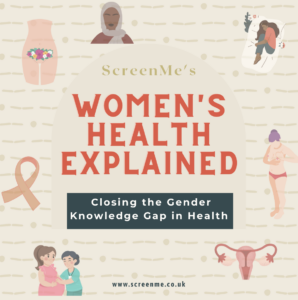Living in the moment means starting from yourself. Self-care has become a trend in the last decades. Women all over the world keep control of their physical and mental health and pay more and more attention to what is on their plate. But what stays overlooked, and really shouldn’t?
One of the most serious aspects affecting our everyday life is reproductive health. It’s not a secret that hormonal imbalance and nutritional deficiencies can make you feel tired or even depressed. Possibly, the symptoms you experienced last month or even years are not healthy. These symptoms can be overcome after one easy analysis and consultation with an expert.
Another good reason to check your reproductive health is your future fertility. Even if you think this is still a long-term perspective for you, some issues are easy to address or prevent earlier on, but can take years and thousands of pounds to be treated at a later point.
Why should you care about fertility now?
This is not my problem – I am okay, I have a more or less regular menstruation cycle and I feel just fine.” This is one of the most widespread reasons not to have a reproductive health check, especially amongst women under 30. Unfortunately, the reality is not so predictable.
One in seven couples all over the world are facing fertility problems.
The reasons can be different: ecology, heredity issues,age or lifestyle.
Should you panic or get upset? No, because you do something today to avoid problems in the future.
And the good news is that avoiding future problems or taking control of your health needs only one step – choosing to get insight into your health today. At ScreenMe we are absolutely ready to help you!
But, if you still think that odds do not apply to you, please read the rest of this article.
What is infertility?
Infertility is the inability to get pregnant even after having frequent and unprotected sex for one year. The reasons can vary and can be connected with a woman, a man, or both partners. Age, irregular menstrual cycle and anovulation can also be barriers to conceiving.
What period of trying to conceive is normal?
Usually, during the one year of trying regularly you should be able to conceive. If you have not succeeded in this period, it is recommended to visit a doctor. For women over 35 years this term is shorter still – 6 months. That’s because ovarian reserves are rapidly declining and the faster you will start to investigate your health, the more chances you will have to have a healthy baby. So even if having a child is something you want in the future, getting an insight into your fertility timeline can help you make informed plans and reduce risk of running into problems later.
Is infertility a common problem?
UCLA Health studies show an average rate of couples having difficulties conceiving at 15%. Globally, the number of couples experiencing infertility was 48,5 million according to Reproductive Biological Endocrinology health research, made in 2015 and continues to grow these years.
If you live in the UK or other rapidly developing countries, regular health and fertility checks are considered essential.
According to a systematic analysis of national health surveys, in 2010, approximately 10.5% of women around the world experienced secondary infertility (inability to get pregnant or carry a baby after being pregnant before and having a baby without any trouble), and roughly 2% experienced primary infertility.
%20Infertility%20facts%20you%20should%20know.png)
Global prevalence of primary infertility, 2010
%20Infertility%20facts%20you%20should%20know.png)
Global prevalence of secondary infertility, 2010
Male and female infertility
Even if you have already done your health check, we advise you to encourage your partner to do the same.
Why? Let’s see some figures.
Both genders can be affected by infertility. The numbers are practically the same: 9% for men and 10% for women aged 18 to 44 may have fertility issues (CDC, 2013 and Office on Women’s Health, 2019).
Looking for the reason of the unsuccessful results of your year-long attempts, chances of both partners needing a check are equal: 30% of cases go to women, 30% go to men, 30% can be attributed to both partners and about 10% have unknown causes.
That’s why a regular health check is essential not only for you but also for your partner. And of course, there are steps you can take to support male and female fertility in a natural way in your family.
%20Infertility%20facts%20you%20should%20know.jpg)
Can infertility be medically treated?
The good news is that today the World Health System has made great progress in diagnosing and treating conceiving problems. Drug and hormonal treatment, tailored nutrition, and different reproductive techniques such as ivf can overcome around 90% of infertility cases! So the sooner you know where you stand on your health, the sooner you can take action.
- For example, you should consider doing an easy health check to be sure that your Estrogen, FSH, LH, AMH (egg reserves) are on your side, especially if thoughts of struggling to conceive concern you at all.
Recurrent miscarriages and pregnancy loss is heartbreaking but is not a verdict either. 60% of women who experience this loss can have a healthy pregnancy without further treatment. But to reduce the risks of miscarriages we recommend you to take care of your vaginal health and general health – starting now!







